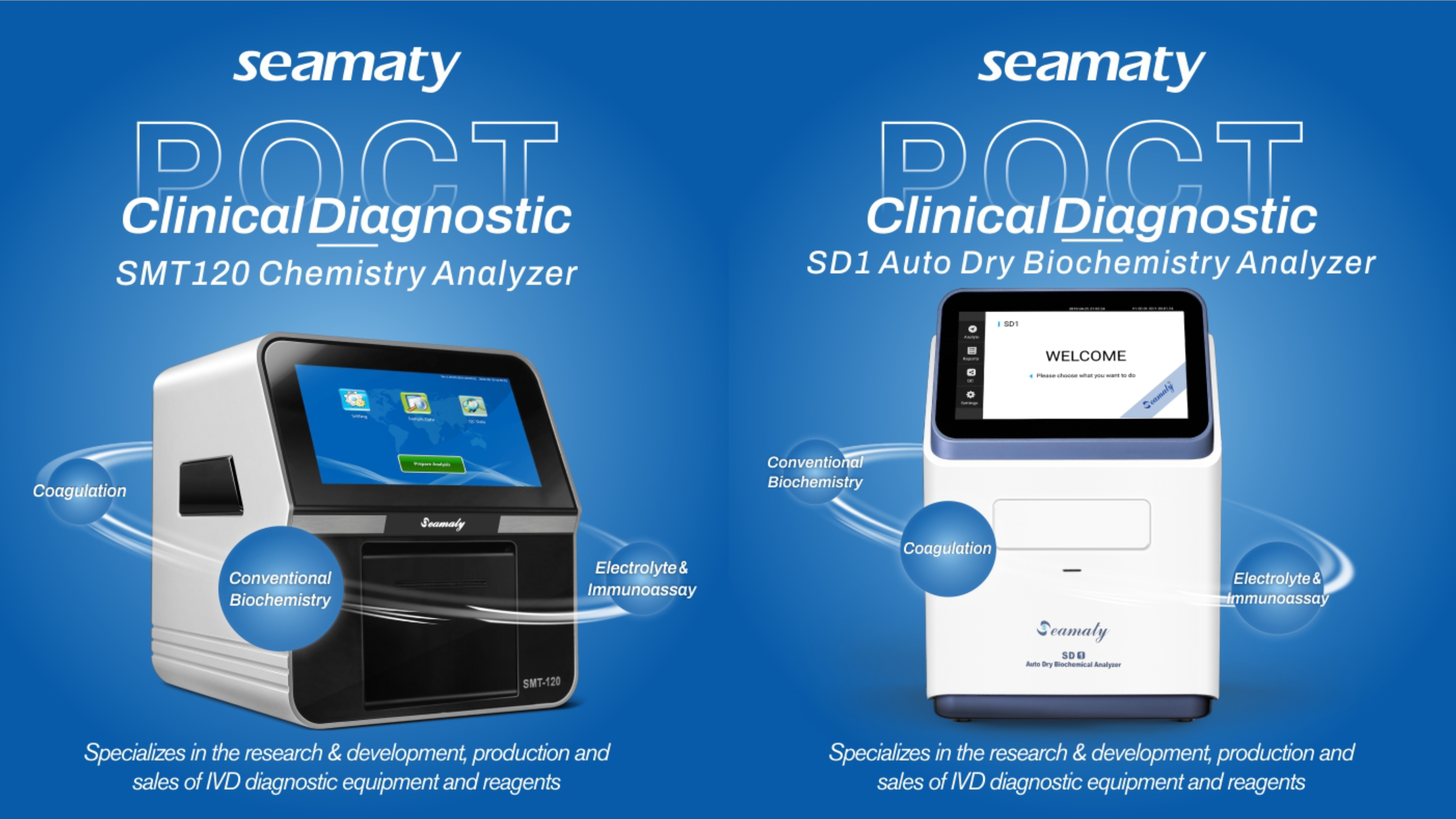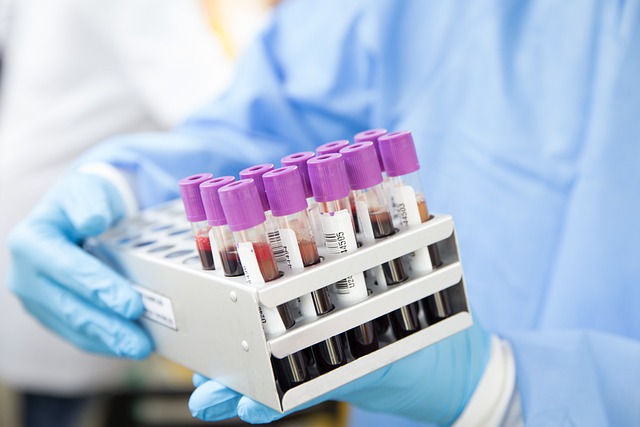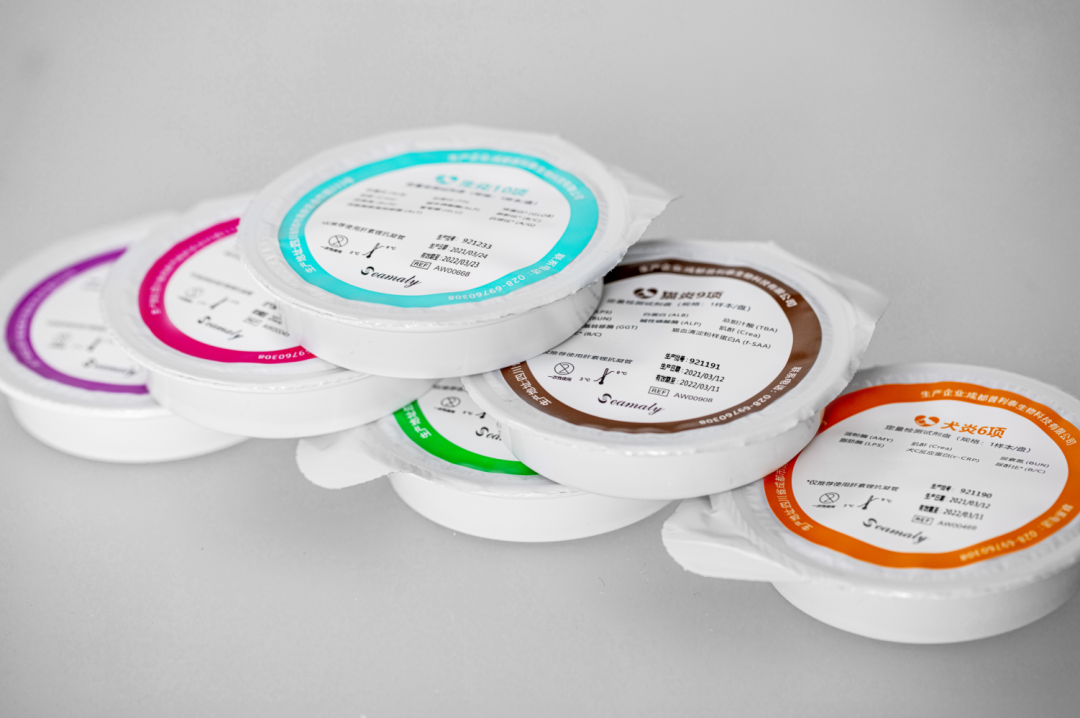release time:2024-09-05 15:39:17
Chemistry analyzers play a pivotal role in clinical diagnostics, enabling healthcare practitioners to obtain crucial information about a patient's health. Two prominent types of analyzers, dry chemistry and wet chemistry, have revolutionized the field. In this article, we will delve into the differences between these two technologies, explore their advantages and disadvantages, and shed light on the innovative dry chemistry analyzers offered by Seamaty.
Wet chemistry analyzers have long been the gold standard in clinical diagnostics. These analyzers employ traditional methodologies that involve liquid reagents and extensive sample preparation. While they have proven effective, they do come with certain limitations. Wet chemistry analyzers require skilled operators, extensive time for sample preparation, and a significant amount of reagents.
Enter dry chemistry analyzers, a technology that has revolutionized clinical diagnostics. Dry chemistry analyzers offer a more efficient and convenient approach to testing. Seamaty's dry chemistry analyzers, in particular, have garnered attention for their innovative features and capabilities. Let's explore some of the advantages of dry chemistry analyzers as well as the unique offerings of Seamaty's products.
|
Aspects |
Dry Chemistry Analyzers |
Wet Chemistry Analyzers |
|
Methodology |
Utilize dry reagent system |
Involve liquid reagents and sample preparation |
|
Accuracy |
Significant advancements in precision |
Generally accurate results |
|
Turnaround Time |
Quick results (e.g., 12 minutes) |
Longer time required for analysis |
|
Cost-effectiveness |
Fewer consumables, reduced costs |
More consumables, higher costs |
|
User-friendliness |
Designed for ease of use |
Requires skilled operators |
Seamaty SMT-120 Dry Chemistry Analyzer: The SMT-120 is a fully automated clinical chemistry system designed for on-site testing. It offers small laboratories a cost-effective solution with accurate results in just 12 minutes. The utilization of patented single-use reagent discs, capable of conducting up to 18 chemistry tests, ensures efficiency and convenience.
Seamaty SD1 Dry Chemistry Analyzer: The SD1 is a fully automated dry chemistry analyzer that enables faster, easier, and more accurate medical diagnosis using just 0.1cc of whole blood, serum, or plasma. Its cloud computing capabilities empower operators to make medical decisions remotely. With a built-in centrifuge, QR code system, and real-time quality control, the SD1 ensures reliable results printed automatically after 12 minutes.
Dry chemistry analyzers have brought about a paradigm shift in clinical diagnostics, challenging the dominance of traditional wet chemistry analyzers. The advantages of dry chemistry analyzers, such as speed, accuracy, cost-effectiveness, and user-friendliness, make them a compelling choice for modern laboratory settings. Seamaty's innovative dry chemistry analyzers, including the SMT-120 and SD1, further enhance the capabilities of these devices, offering efficient and accurate on-site testing solutions. By embracing these advancements, healthcare practitioners can improve patient care and streamline laboratory operations.


2022-03-28
The outbreak of the Coronavirus has also led to the emergence of Coronavirus testing products. There are currently three main methods of testing for Coronavirus in the world, which are nucleic acid testing, antibody testing, and antigen testing.

2022-03-09
Biochemical testing requires the collection of patient's blood, but the quality control before biochemical testing is an important link

2021-08-09
Compared with traditional large and time-consuming pet diagnostic equipment, Chengdu Seamaty Technology Co., Ltd. has introduced a portable biochemical analyzer - SMT-120V - developed specifically for pet diagnosis.